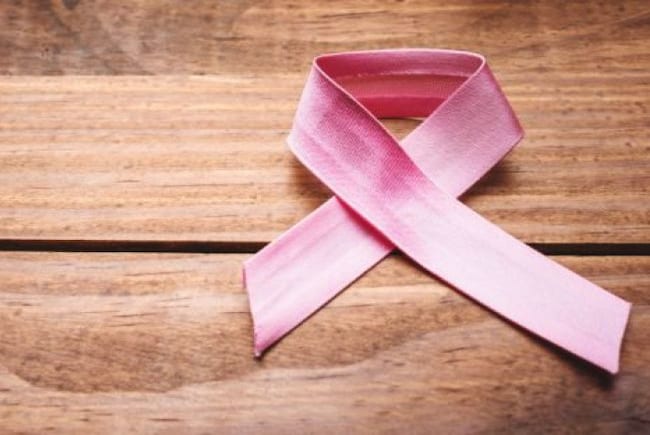
Women with diabetes were less likely to have mixed or dense breasts, as opposed to obese ones. (Representational Image)
London:
Diabetes treatment decreases mammographic density (MD), a strong risk factor for breast cancer, a new study has found.
However, taking insulin increases density, scientists said.
Researchers studied 5,644 women (4,500 of who were postmenopausal) who attended mammographic screening between 1993 and 2001.
The group had an average age of 56 years; 137 (2.4 per cent) had diabetes, and 3,180 (56.3 per cent) had breasts categorised as mixed or dense breasts.
"Women with diabetes were less likely to have mixed or dense breasts, as opposed to fatty ones, both before and after adjustment for other factors such as being overweight," said Zorana Jovanovic Andersen from University of Southern Denmark.
Similar inverse associations were found in the 44 women who controlled diabetes by diet alone, and the 62 who took oral medication for the condition.
However, diabetic women using insulin injections had increased odds of having mixed or dense breasts. These associations were not modified by menopausal status or by body mass index (BMI), researchers said.
"Diabetes is associated with an increased risk of breast cancer, but the exact mechanisms which bring this about are still unclear. One of the characteristics of cancer cells is their ability to grow rapidly and uncontrollably, and to resist the programmed death that occurs in non-cancer cells," said Anderson.
"Therefore, growth factors are critical to cancer development and progression. We know that insulin is an important growth factor for all body tissues, and even if we do not know exactly how it affects the development of cancer cells, it is also highly plausible that it increases breast density," she said.
Breast density is one of the strongest risk factors for breast cancer, with women with high density breasts (more than 75 per cent density) having a four to six times greater risk than women with an MD of less than 25 per cent, researchers said.
However, they emphasise that the finding that insulin treatment is associated with increased MD does not imply that it increases breast cancer risk.
"Breast density is only one of many risk factors for developing breast cancer," said Andersen.
Although past studies have linked diabetes to MD, this is the first time that data on diabetes treatments and insulin use have been studied.
The findings were presented at the 10th European Breast Cancer Conference.
(This story has not been edited by NDTV staff and is auto-generated from a syndicated feed.)
However, taking insulin increases density, scientists said.
Researchers studied 5,644 women (4,500 of who were postmenopausal) who attended mammographic screening between 1993 and 2001.
The group had an average age of 56 years; 137 (2.4 per cent) had diabetes, and 3,180 (56.3 per cent) had breasts categorised as mixed or dense breasts.
"Women with diabetes were less likely to have mixed or dense breasts, as opposed to fatty ones, both before and after adjustment for other factors such as being overweight," said Zorana Jovanovic Andersen from University of Southern Denmark.
Similar inverse associations were found in the 44 women who controlled diabetes by diet alone, and the 62 who took oral medication for the condition.
However, diabetic women using insulin injections had increased odds of having mixed or dense breasts. These associations were not modified by menopausal status or by body mass index (BMI), researchers said.
"Diabetes is associated with an increased risk of breast cancer, but the exact mechanisms which bring this about are still unclear. One of the characteristics of cancer cells is their ability to grow rapidly and uncontrollably, and to resist the programmed death that occurs in non-cancer cells," said Anderson.
"Therefore, growth factors are critical to cancer development and progression. We know that insulin is an important growth factor for all body tissues, and even if we do not know exactly how it affects the development of cancer cells, it is also highly plausible that it increases breast density," she said.
Breast density is one of the strongest risk factors for breast cancer, with women with high density breasts (more than 75 per cent density) having a four to six times greater risk than women with an MD of less than 25 per cent, researchers said.
However, they emphasise that the finding that insulin treatment is associated with increased MD does not imply that it increases breast cancer risk.
"Breast density is only one of many risk factors for developing breast cancer," said Andersen.
Although past studies have linked diabetes to MD, this is the first time that data on diabetes treatments and insulin use have been studied.
The findings were presented at the 10th European Breast Cancer Conference.
(This story has not been edited by NDTV staff and is auto-generated from a syndicated feed.)
Track Latest News Live on NDTV.com and get news updates from India and around the world

